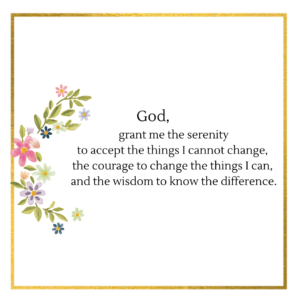In his book Letting Go, David Hawkins describes the state of acceptance as one in which you enjoy the experience of harmony. You feel as though events are flowing. You feel secure.
Hawkins says, ‘there is the feeling. I'm okay. You're okay. And it's okay.’
And because of the security this state provides, you can allow yourself to be flexible, easy-going, and natural.
There is joy.
There is the feeling that nothing needs to be changed.
Everything is perfect and beautiful the way it is.
Acceptance is powerful.
But what exactly is acceptance?
Here we are talking about acceptance of what is.
It means you release any resistance to your current circumstances and feel emotional ease. You cease complaining and move into a state of gratitude. You let go of the need to control and manipulate outcomes.
You trust that everything will work out just as it is meant to.
And what it isn’t?
Acceptance isn't:



Why is acceptance important?
The benefits of acceptance are plentiful.
It brings peace. It allows energy to flow through you as it should.
It makes you acknowledge all that you have.
It stops fighting. It releases blame. It invites forgiveness and compassion.
Acceptance makes you feel better.

How do you practice acceptance?
Eckhart Tolle, in his book, says that whatever you cannot enjoy doing, you can at least accept that this is what you must do.
“Acceptance means for now this is what this situation this moment requires me to do and so I do it willingly.”
Tolle gives an example of changing a flat tyre on your car in the middle of the night and in pouring rain. You probably won’t enjoy it and you might not have any enthusiasm about it, but you can bring acceptance to it.
I am sure you will find evidence in your own life where your reaction has governed how smoothly things have turned out. We can either accept the situation or resist it. Resistance brings pain; acceptance brings peace.
Resistance is fear.
According to Panache Desai, author of You Are Enough, resistance is a reluctance to fail whatever is going on inside of you. it is your dissatisfaction with what is. Resistance locks energy in place. It prevents momentum and expansion.
When you think life should be different than it is, you cut off the flow of opportunities and solutions that might be available to you and you maintain powerlessness.
Dream big but surrender your attachment to a specific outcome.
Attachment to outcomes limits possibilities and causes suffering.
A good example of this is the notion of winning the lottery. If you believe that this is the only way out of your financial hardship, you are limiting all the creative ideas that might otherwise liberate you. The odds of winning the lottery are so remote that you are effectively committing to a lifetime of poverty.
Commit to inner peace instead.
When you let go of control and begin to surrender, you naturally start to accept. And when you detach from the outcome, you are left with peace.
---------------------------------------------------------------------------------------------------------
For more about acceptance, click here to listen to me speak on the subject on Isabelle Nanin’s Talk Show – 9th May 2022.


